Education
Supreme Court weighs parents’ objections to LGBTQ content in elementary schools

WASHINGTON — The Supreme Court on Tuesday considers the latest dispute that pits religious rights against LGBTQ rights as the justices weigh parents’ objections over books made available in a school district’s elementary schools that feature stories about gay and transgender characters.
At issue are books included in the English language arts curriculum in Montgomery County, Maryland. The dispute arose in 2022 after the school board in Montgomery County, a large and diverse jurisdiction just outside Washington, decided it wanted more storybooks reflecting LGBTQ stories to better reflect the people who live there.
One book, “Uncle Bobby’s Wedding,” features a gay character who is getting married. Another, called “Born Ready,” is about a transgender child who wants to identify as a boy.
Some parents objected on religious grounds under the Constitution’s First Amendment, saying their children should be able to opt out of any exposure to the content.
The lead plaintiffs are Tamer Mahmoud and Enas Barakat — a Muslim couple who have a son in elementary school. Other plaintiffs are members of the Catholic and Ukrainian Orthodox churches.
They are not challenging the curriculum itself, just the lack of an opt-out.
A federal judge and the Richmond, Virginia-based 4th U.S. Circuit Court of Appeals both ruled in favor of the school board.
The Supreme Court will determine whether the school board policy burdens religious rights. The justices could then determine whether that burden violates the Constitution, or they could send the case back to lower courts to make that determination.
The parents, represented by the religious liberties group Becket, say that under Supreme Court precedent they have a right to opt out of any instruction that would interfere with their children’s religious development.
The school board is “compelling instruction designed to indoctrinate petitioners’ children against their religious beliefs,” the parents’ lawyers wrote.
The parents have the backing of the Trump administration.
Lawyers for the school board said in court papers that there is no attempt to coerce children and that there was an attempt to allow an opt-out “until doing so became unworkably disruptive.”
The lawyers wrote that the court record is “devoid of evidence that petitioners or their children are compelled or pressured to modify their religious beliefs or practice.”
The school board also asserts that although the books are in classrooms and available for children to pick up, teachers are not required to use them in class.
The Supreme Court has a 6-3 conservative majority that often backs religious rights, including in cases involving conflicting arguments made by LGBTQ rights advocates. In 2023, for example, the court ruled in favor of a Christian web designer who refused to work on same-sex weddings.
The court is hearing another major religious case next week when it considers whether to approve the country’s first public religious charter school.
In its next term, which starts in October, the court will consider a challenge to state laws that ban “conversion therapy” aimed at young people questioning their sexual orientations or gender identities.
Education
Over 150 college presidents sign letter rebuking ‘government overreach’
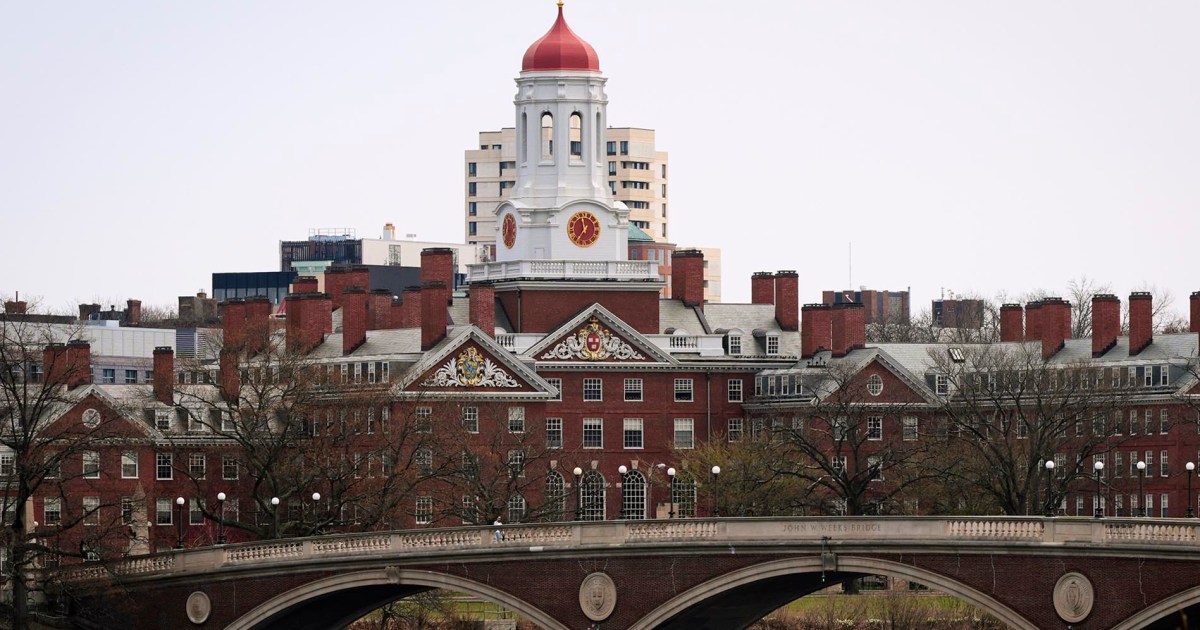
More than 150 university and college presidents co-signed a letter on Tuesday condemning the Trump administration’s recent efforts to dictate the policies of private higher education institutions in exchange for federal funding.
In recent weeks, the Trump administration has paused billions of dollars in federal grants to several of the nation’s most prestigious universities — including Harvard, Columbia and Princeton — in an attempt to get the universities to change their admissions processes and penalize student protestors.
The letter’s signatories range from large public universities to small liberal arts schools, and include each of the Ivy League schools, except for Columbia University and Dartmouth University.
“As leaders of America’s colleges, universities, and scholarly societies, we speak with one voice against the unprecedented government overreach and political interference now endangering American higher education,” the Tuesday letter, orchestrated by the American Association of Colleges and Universities, says.
“We are open to constructive reform and do not oppose legitimate government oversight,” the letter continues. “However, we must oppose undue government intrusion in the lives of those who learn, live, and work on our campuses.”
“We will always seek effective and fair financial practices, but we must reject the coercive use of public research funding,” it adds.
The White House did not immediately return a request for comment.
So far, the Trump administration has only paused or threatened to pause billions of dollars of federal funding, which is vital to the operations of several universities, including Columbia, Harvard, the University of Pennsylvania, and Princeton. The moves are part of the administration’s broader effort to “root out” antisemitism on college campuses.
Columbia ceded to a list of demands by the Trump administration last month in exchange for starting talks to restore funding. The demands included instituting a mask ban at protests in most cases, hiring an outsider to oversee its Department of Middle East, South Asian, and African studies, committing to “greater institutional neutrality” and enlisting three dozen new security officers.
The New York City-based university’s acquiescence prompted outrage among the higher education community. Columbia’s interim president at the time, Katrina A. Armstrong, resigned a week later.
Harvard was similarly sent a list of demands by the Trump administration, which mandated that the university audit the viewpoints of students and professors and shutter its diversity, equity, and inclusion programs.
Although it initially appeared that the university would take a similar approach to Columbia, Harvard ultimately rejected the administration’s orders.
Harvard, which was founded more than a century before the United States, sued the administration on Monday and asked a federal judge in Massachusetts to reverse the termination of $2.2 billion in federal grants to the university.
Tuesday’s letter also denounced the Trump administration’s unprecedented effort to deport international students.
In recent weeks, the Trump administration has revoked hundreds of student visas from foreign students, many of whom are Middle Eastern. Immigration authorities have also apprehended foreign students, some of whom were involved in pro-Palestinian protests at universities last year.
Education
Harvard sues federal government after Trump administration slashed billions in funding
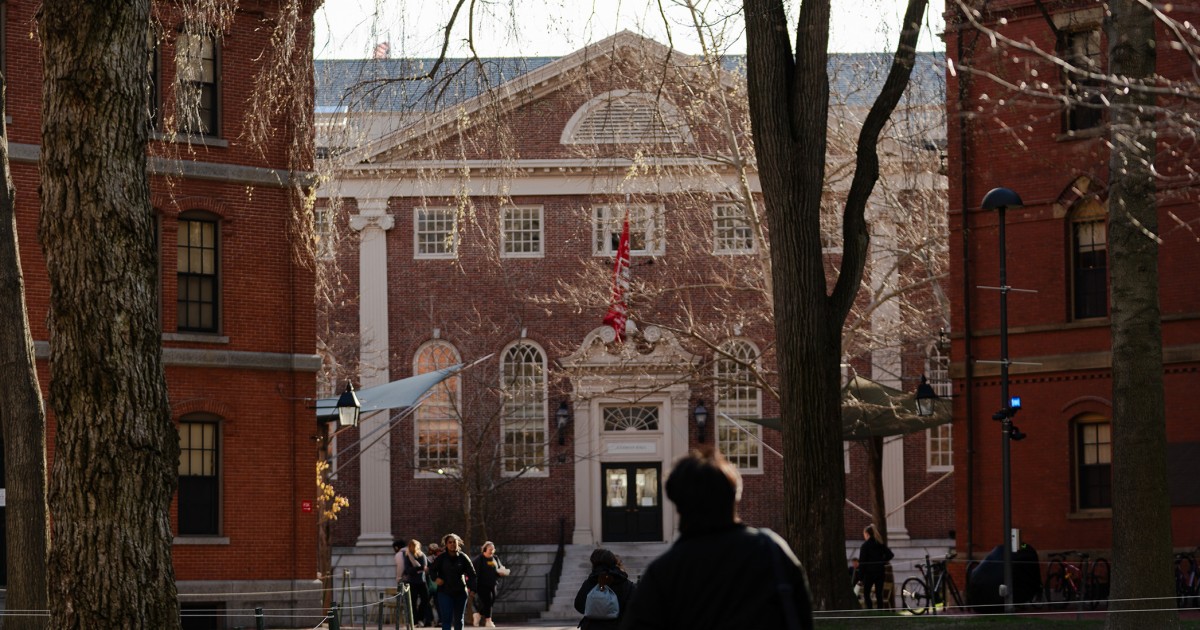
Harvard University sued the Trump administration on Monday after the federal government said it was freezing $2.2 billion in grants and sought what university officials described as “unprecedented and improper” control over the Ivy League institution.
“The consequences of the government’s overreach will be severe and long-lasting,” Harvard President Alan Garber said in a message Monday announcing the lawsuit.
The suit, filed in federal district court in Massachusetts, accuses the administration of flouting the First Amendment and other federal laws and regulations. The 51-page complaint asks a federal judge in Massachusetts to declare the president’s “freeze order” unconstitutional and to order the government to reverse any terminations of — or freezes to — federal funding.
Last week, the Trump administration announced that it was freezing federal funding after the school refused to accept demands that the administration has said aim to address antisemitism on campus.
Among the government’s demands were an audit of student body views and a ban on international students who are “hostile to the American values and institutions.”
In Monday’s suit, the university argued that the funding freeze is not related to the administration’s antisemitism concerns.
“The Government has not — and cannot — identify any rational connection between antisemitism concerns and the medical, scientific, technological, and other research it has frozen that aims to save American lives, foster American success, preserve American security, and maintain America’s position as a global leader in innovation,” the lawsuit said. “Nor has the Government acknowledged the significant consequences that the indefinite freeze of billions of dollars in federal research funding will have on Harvard’s research programs, the beneficiaries of that research, and the national interest in furthering American innovation and progress.”
The White House did not immediately respond to a request for comment Monday.
After Harvard said it would not comply with the administration, President Donald Trump suggested the university should lose its tax-exempt status — a move that could have severe repercussions for the school.
Harvard has said the government has no legal basis to rescind its status.
The escalating battle between Harvard and the federal government comes amid a broader effort from the administration to target what it describes as a failure to deal with antisemitism on college campuses.
Last month, Columbia University agreed to a list of administration demands after the government said it would cut $400 million in funding over “inaction in the face of persistent harassment of Jewish students.”
The administration also hit Princeton University with $4 million in cuts in part for promoting what Commerce Secretary Howard Lutnick described as “climate anxiety” through a lab that develops atmospheric and oceanic models. The school was one of several universities to sue the administration last week over what the lawsuit said was a “flagrantly unlawful” move to cut research funding.
Education
Involuntary collection of defaulted student loans to resume, Education Department says
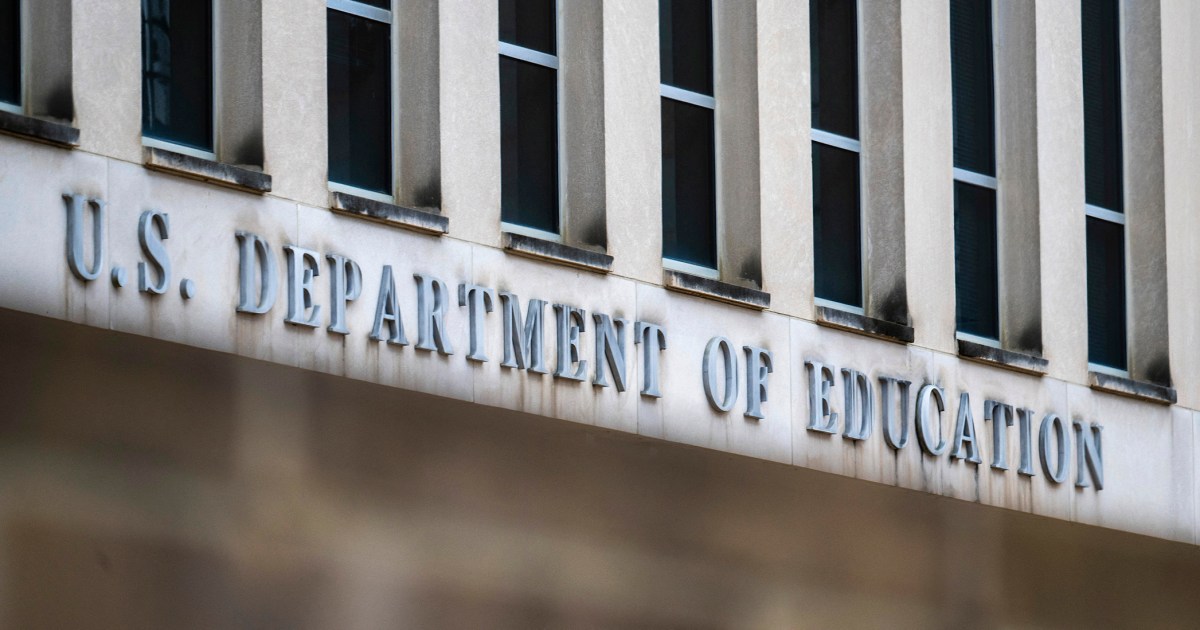
The U.S. Department of Education on Monday said it’s restarting “involuntary” repayment of federal student loans that are in default.
The payments were paused during the first term of President Donald Trump in 2020 as a response to the Covid pandemic.
“Beginning May 5, the department will begin involuntary collection through the Treasury Department’s offset program, which withholds payments from the government — including tax refunds, federal salaries and other benefits — from people with past-due debts to the government,” the department said in a statement.
Wages will be garnished following a 30-day warning, it added.
An estimated 5.3 million borrowers are in default on their federal student loans, though the department said that number could reach 10 million in a few months. Repayment will be administered by the U.S. Department of Treasury, and affected borrowers will get notices in the next two weeks, the department said in a statement.
The administration of President Joe Biden continued to pause repayment under a campaign promise to relieve student debt, but the U.S. Supreme Court ruled in 2023 his plan was not constitutional because it did not fall under congressional approval.
“American taxpayers will no longer be forced to serve as collateral for irresponsible student loan policies,” said U.S. Secretary of Education Linda McMahon. “The Biden Administration misled borrowers: the executive branch does not have the constitutional authority to wipe debt away, nor do the loan balances simply disappear.”
-

 Sports2 days ago
Sports2 days agoNBA Playoffs: Steph Curry leads Golden State Warriors to Game 1 win and more from Sunday’s action
-

 Middle East7 hours ago
Middle East7 hours agoIsraeli spy chief accuses Netanyahu of demanding illegal operations | Politics News
-

 Europe9 hours ago
Europe9 hours agoSimone Biles, Mondo Duplantis win big at 25th Laureus World Sports Awards
-

 Africa12 hours ago
Africa12 hours agoKenyan runners win both male and female races at Boston Marathon 2025
-
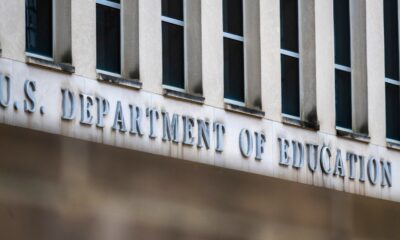
 Education20 hours ago
Education20 hours agoInvoluntary collection of defaulted student loans to resume, Education Department says
-
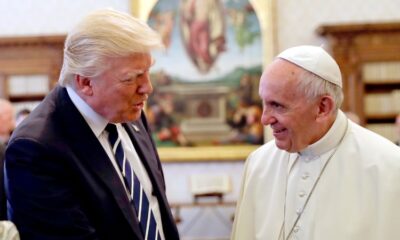
 Europe1 day ago
Europe1 day agoTrump and Francis, both elected as outsiders, sparred from afar on policy and diverged on leadership style
-

 Conflict Zones2 days ago
Conflict Zones2 days agoJailed for fishing: India-Pakistan tensions trap families in debt, poverty | Border Disputes
-

 Sports1 day ago
Sports1 day agoHolger Rune stuns Carlos Alcaraz to win Barcelona Open and end two-year trophy drought




